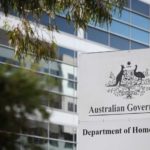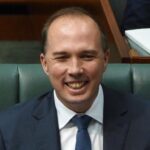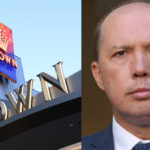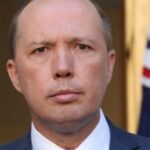Increase in Corruption Complaints Against Home Affairs is a Positive Sign, Watchdog Claims
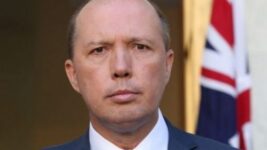
The federal law enforcement watchdog has asserted that an increase in corruption referrals regarding the Department of Home Affairs doesn’t indicate a rise in dishonest conduct, but rather displays a “growing maturity” within the ministry’s “integrity arrangements”.
The Australian Commission for Law Enforcement Integrity (ACLEI) Commissioner’s annual report 2019-20 outlines that over the 12 month period covered, it received 172 notifications about potential corruption issues, which was a marked increase compared with recent years.
And of these, 167 corruption notifications were related to Home Affairs and its related bodies. One hundred were to do with the department directly, 63 were in regard to the Australian Federal Police (AFP), and four related to the Australian Criminal Intelligence Commission (ACIC).
The ACLEI went on to launch investigations into 11 of these matters, with six of them directly involving Home Affairs.
And over the year 2019-20, five prosecutions that arose as a result of ACLEI investigations were finalised. Three of these involved Australian Border Force (ABF) officers, while the other two involved civilians.
Policing the police
The federal law enforcement watchdog was established via the Law Enforcement Integrity Commissioner Act 2006 (Cth). The minister responsible for the statutory body is the Australian attorney general, currently Christian Porter.
“Detect, investigate and prevent corruption in prescribed law enforcement agencies” and “assist law enforcement agencies to maintain and improve the integrity of staff members,” is the mandate the ACLEI is charged with.
At present, the ACLEI has jurisdiction over the ACIC, the AFP, including ACT Policing, the Australian Transaction Reports and Analysis Centre (AUSTRAC), Home Affairs, including the ABF, as well as prescribed parts of the Department of Agriculture, Water and the Environment.
The heads of these agencies are required to notify the Integrity Commissioner of any corruption issues. And information regarding corrupt behaviour can also come from the general public, the attorney general, and other government agencies.
Increasing maturity
“Overall, we consider that the increase in notifications represents the growing maturity of the department’s integrity arrangements,” the report authors conclude. “There does not appear to be any substantive change in the areas of Home Affairs in which corruption issues arise.”
The factors the watchdog goes on to list as reasons for the increase are a greater awareness of the need to stamp out such conduct, a recent rise in the number of staff falling under the ACLEI’s reach, as well as some just identified historical issues.
A question of corruption
One of the five prosecutions that came to a close over this year was Operation Valadon. Commencing in June 2017, it concerned the conduct of former Australian Border Force commissioner Roman Quaedvlieg.
The investigation considered eight allegations that Quaedvlieg’s conduct fell outside of his oath of office and could amount to corruption. The assertions revolved around the former ABF commissioner assisting his girlfriend, Sarah Rogers, in gaining employment with the department.
The former Integrity Commissioner made three findings of corrupt conduct against Quaedvlieg, however no charges were laid due to insufficient burden of proof.
The former ABF boss has gone on to label the ACLEI’s investigation as “deeply flawed”.
Ms Rogers was found to have given false testimony during the investigation into her partner’s conduct. And in July last year, she pleaded guilty to the offence at the Downing Centre, where she was sentenced to a 7 month intensive corrections order and 100 hours community service.
A toothless watchdog
The Morrison government last week released its draft legislation relating to the establishment of a Commonwealth Integrity Commission (CIC). This anti‑corruption body will have the power to investigate the Commonwealth public service and it will subsume the ACLEI.
As part of this process the ACLEI is to cover four new agencies – including the Australian Securities and Investments Commission (ASIC) and the Australian Tax Office (ATO) – from next January, while receiving an extra $9.9 million in funding and 38 additional staff members.
However, critics of the CIC are raising questions as to why the government’s proposed new watchdog will be holding hearings for law enforcement agencies in public, while those involving politicians will be held behind closed doors.
Why “should law enforcement officers, of whom the attorney general is the notional head, be held to a higher and different standard than the attorney general himself”? Sydney barrister Geoffrey Watson has asked.
“Why do politicians get special protection?”


